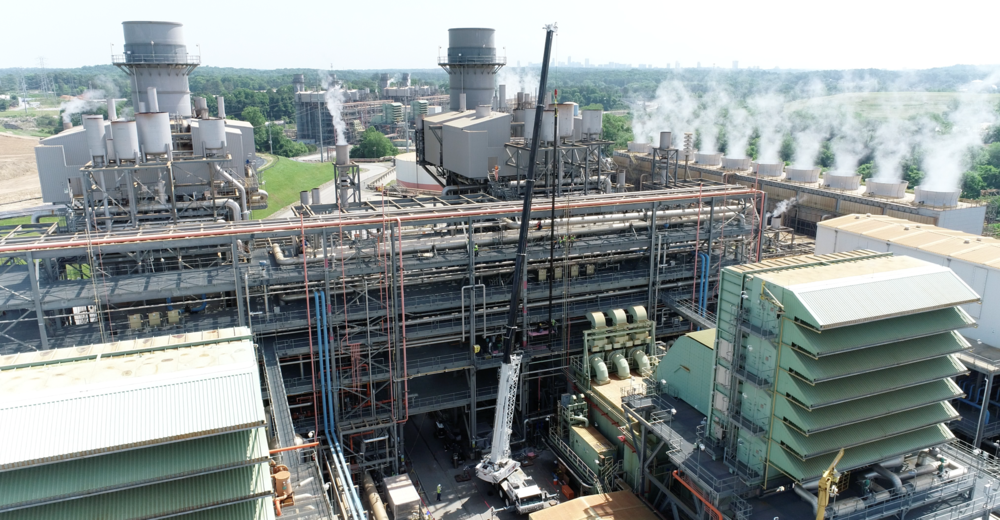
Caption
Georgia Power says it successfully tested a hydrogen blend in its natural gas plant in Smyrna, Plant McDonough, seen in this undated photo, this summer.
Credit: Georgia Power

Georgia Power says it successfully tested a hydrogen blend in its natural gas plant in Smyrna, Plant McDonough, seen in this undated photo, this summer.
A coalition of Southeastern utilities is seeking federal funding for a regional hydrogen hub.
The utilities, including Georgia Power’s corporate parent, Southern Company, believe that hydrogen is poised to play a major role in reducing climate-warming carbon emissions.
That’s because hydrogen, the most abundant element in the universe, is a clean and versatile energy source that could be used in trucks, ships and planes in ways that batteries can’t.
“One of the possibilities and opportunities with this hub is to put transportation infrastructure in place to make hydrogen more available for more commercial applications,” said Chris Womack, president and CEO of Georgia Power.
Transportation companies see hydrogen power as preferable to batteries because, with current technology, it takes up less space than batteries — and space is money on trucks, ships and planes.
But hydrogen is expensive.
That’s why the U.S. Department of Energy plans to award $7 billion next year to work on making it cheaper.
“With input from America’s brightest scientists, engineers, community organizers and entrepreneurs, this national hydrogen strategy will help us accelerate the development and deployment of technologies to realize the full potential of clean hydrogen energy for generations to come,” U.S. Secretary of Energy Jennifer M. Granholm said.
Georgia Power already is doing some research into hydrogen.
Womack said the company successfully tested a hydrogen blend in its natural gas plant in Smyrna this summer.
The company said the demonstration project was the largest test of its kind to date, with the 20% blend providing an approximately 7% reduction in carbon emissions compared to natural gas.
“As we look at other actions to take to move toward zero carbon emissions, hydrogen has the potential to be a contributing part of that future,” Womack said.
To be sure, hydrogen remains far from an ideal solution. It still requires energy to produce and no one knows when or even if it’ll be widely adopted.
But the hope is that with public and private research, a more ideal solution will come more quickly.
The coalition includes utility members from six states including Dominion Energy, Duke Energy, Louisville Gas & Electric Company, Kentucky Utilities Company and the Tennessee Valley Authority.
The federal funding comes from President Biden’s Bipartisan Infrastructure Law, complemented by new incentives in the Inflation Reduction Act.